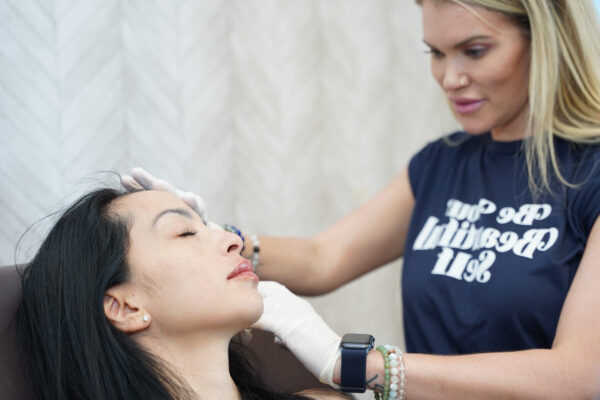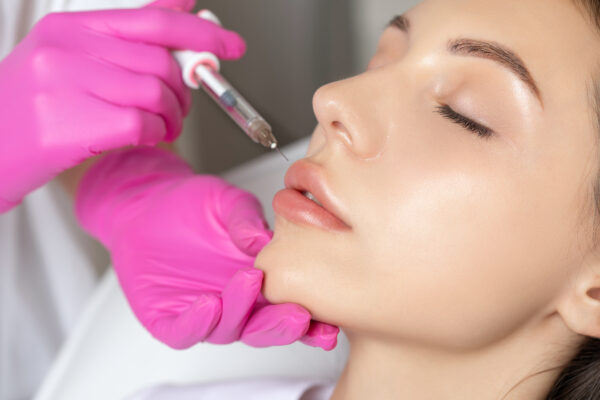If you’ve been enjoying the benefits of Botox or are considering starting treatments, you might wonder: what happens if you stop? Will wrinkles suddenly come back worse? Will your face “droop” or look different?
These are common concerns—and they’re valid. But the good news is, most of the scary things you’ve heard are myths. Stopping Botox doesn’t mean your face will age overnight. Let’s take a closer look at what actually happens when you pause treatments, how to maintain results, and what alternatives are out there.
Why People Worry About Stopping Botox
From social media to word of mouth, there’s a lot of misinformation about stopping Botox. You may have heard things like:
- “Your face will sag.”
- “Wrinkles will come back even worse.”
- “You’ll become dependent on it.”
These myths can make the idea of stopping Botox seem more intimidating than it should be. The reality is far less dramatic.
What Botox Does — And What It Doesn’t
How Botox Works
Botox is a neuromodulator that temporarily relaxes the facial muscles responsible for expression lines. When injected into targeted areas like the forehead, crow’s feet, or frown lines, it reduces muscle movement that causes dynamic wrinkles.
What Happens Over Time
When used consistently, Botox can prevent deeper wrinkles from forming. Many users report that their skin looks smoother even between appointments. However, it’s important to know that Botox isn’t a permanent solution—it doesn’t erase wrinkles forever, and its effects gradually wear off over time.
What Happens When You Stop Getting Botox?
Gradual Return of Movement
If you stop Botox, your muscles will slowly regain full activity over 3 to 6 months. You won’t wake up one day and look dramatically older. Instead, movement and expression lines will return at a natural pace.
Wrinkles Won’t Come Back Worse — Here’s Why
One of the most common fears is that stopping Botox causes a “rebound” effect where wrinkles return even deeper than before. Thankfully, there is no scientific evidence to support this.
What really happens is this: after months (or years) of smoother skin, your natural wrinkles feel more noticeable. But they’re simply returning to their pre-Botox state—not worsening.
According to the Cleveland Clinic, Botox doesn’t stretch or damage the skin, and stopping treatment won’t make wrinkles worse. Instead, your face simply returns to its natural aging process. And for long-term users, Botox may even help train your muscles to reduce habitual movements that cause deep wrinkles in the first place—leaving some lasting softening effects even after you stop.
Long-Term Users May Still See Benefits After Stopping
There’s also good news for long-time Botox users. Over time, Botox can help “train” your facial muscles to move more gently. Even after stopping, some people notice their expressions remain softer, and their skin ages more gracefully than it might have otherwise.
Alternatives If You’re Not Ready for Another Round of Botox
Whether you’re taking a break or looking for a new approach, there are other ways to support smooth, youthful-looking skin.
Skincare Ingredients That Help
- Retinol boosts collagen and improves skin texture.
- Peptides support skin firmness and elasticity.
- Hyaluronic acid provides deep hydration and plumps fine lines.
These ingredients won’t freeze muscles like Botox, but they can significantly improve the look of your skin over time.
Other Non-Invasive Options
- Microneedling helps stimulate collagen and reduce fine lines.
- Laser treatments target pigmentation, texture, and tone.
- Radiofrequency tightens skin and supports long-term firmness.
Each of these options offers a different kind of benefit, and some people use them in combination with or instead of neuromodulators.
Lifestyle Tweaks That Make a Difference
Sometimes, it’s the small habits that help the most:
- Drink plenty of water to keep your skin hydrated.
- Wear sunscreen every day to prevent UV damage.
- Reduce stress through mindfulness or sleep hygiene.
- Try gentle facial exercises to improve circulation and tone.
When to Restart Botox — or Try Something New
You don’t have to commit to Botox forever. It’s perfectly fine to stop or pause your treatments. In fact, many people take breaks during different seasons of life—whether for budget, health, or personal reasons.
If you’re wondering whether it’s time to start again, ask yourself:
- Are your expression lines becoming more noticeable?
- Do you feel like your skin looks more tired or aged than usual?
- Are you curious to try a newer, longer-lasting option like Daxxify?
A professional consultation can help you evaluate your current skin and decide what makes the most sense for your goals.
Frequently Asked Questions About Stopping Botox
Q: What happens if you stop getting Botox?
A: Your muscles gradually regain movement, and wrinkles will slowly return to how they were before treatment.
Q: Can you stop Botox once you start?
A: Yes—Botox is not habit-forming or damaging to stop. Many people pause treatments with no issues.
Q: Does your face look worse after stopping Botox?
A: No. While your wrinkles may become more noticeable again, they won’t be worse than they were before.
Q: What does your face look like after stopping Botox?
A: Most people return to their natural facial expressions over a few months. Skin texture may feel different, but not dramatically so.
Q: Are there alternatives to Botox?
A: Yes—non-invasive treatments like microneedling, radiofrequency, and medical-grade skincare can help maintain results.
Conclusion: Stopping Botox Isn’t the End of Smooth Skin
If you’ve been nervous about what happens when you stop Botox, rest assured: your face won’t collapse, and your wrinkles won’t suddenly worsen. What you will notice is a slow return to natural movement—and maybe a new appreciation for all that Botox helped prevent.
Whether you decide to take a break, try an alternative, or come back to it down the road, there are many ways to support healthy, youthful skin.
Ready to restart or learn more about your options? Book your consultation for Botox in Sacramento with Be You Medical and discover what works best for you—no pressure, just honest, expert guidance.



